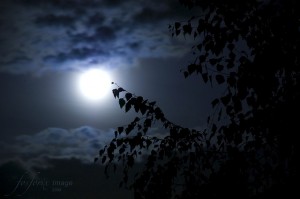Passive Contemplation
I pointed out in the last article that the word ‘contemplation’ can have many meanings, but they can be reduced to two. Firstly, there is ‘contemplation’ as understood by the Church Fathers and official church documents in which we use all our faculties to unite ourselves to God. In this article I will reflect on a type of ‘contemplation’ in which we do not use all our faculties to achieve divine union. In this contemplation we are more passive.
Teresa of Avila speaks of a form of prayer that involves “suspending the intellect, binding one’s imagination…taking the words out of one’s mouth. For even though we want to do so we can only speak with great difficulty” (Way of Perfection, C. 25).
“Without the noise of words the Divine Master is teaching us by suspending our faculties…we enjoy without understanding how we enjoy. The soul is enkindled with love and doesn’t understand how it loves. It enjoys what it loves and doesn’t know how…what I have described is perfect contemplation” (ibid C. 25). Elsewhere she calls this “infused contemplation”, a term not much used today. It is a form of prayer wherein one exercises one’s faculties very little.
John of the Cross also speaks of ‘contemplation’ in this sense. He emphasises strongly that the entry into this kind of prayer is often through what he calls a ‘Dark Night’. One usually starts on the prayer journey, using all one’s faculties to unite oneself to God. Frequently, however, after a short time, perhaps a few years, one enters into darkness and aridity and can no longer use one’s faculties as formerly. But one remains deeply committed to God even though one has no feelings of love.
Union with God is an arid experience of the will and seems unreal. John assures us that a person in this state is entering into a more passive type of prayer, which he calls ‘contemplation’. He is at one with Teresa in saying that in this type of prayer one cannot and must not use one’s faculties to achieve union with God. However, John’s special contribution to our understanding of prayer is to insist that one is progressing in contemplation in the midst of this darkness, aridity and bewilderment. According to John, God is giving himself more fully to the pray-er, and one is blinded by God’s light - hence the darkness. As far as I know John is quite original in stressing that people often enter into deeper prayer, that he calls ‘contemplation’, through a dark night of aridity.
The experience of many directors and of people committed to prayer demonstrates conclusively that John’s ‘Dark Night’ is experienced, in varying degrees, by many people. But there are also many who are deeply committed to God who do not experience to a notable degree this ‘Dark Night’. No one seems to know why some experience it and others do not. Fr. Thomas Green, who was spiritual director to seminarians in the Philippines, testifies on a tape that some form of Dark Night was quite common amongst his clients.
It is important also to realise that the term ‘Dark Night’ is used in two senses by St. John of the Cross, and by many other writers. Firstly the word is used in the sense explained above. One’s faculties cease in varying degrees to function in one’s prayer life. Initially at least this plunges one into aridity and darkness - a ‘Dark Night’. But John and other spiritual writers often use the term ‘Dark Night’ for any kind of suffering on our spiritual journey. John Paul II writes, “physical, moral and spiritual suffering, like sickness, hunger, war, injustice, solitude, the lack of meaning in life, the very fragility of human existence, the seeming absence of God etc. are all for the believer purifying experiences which might be called the night of faith.”
Whether night or suffering comes from development in our prayer life or from other sources it constitutes a challenge to our faith. In order to respond correctly to our suffering we must remain united to God in the darkness of faith. If we accept our night with faith and unfelt love we will turn our suffering into a sacrifice very pleasing to God.
It is also important to realise the difference between the aridity of one wholly committed to God and that of one, who is leading a selfish life. If we live for ourselves and give our hearts excessively to secular values we will become insensitive to the spiritual. It would be spiritually disastrous to imagine that aridity in this case is due to development in our prayer life. What is needed in this case is total conversion.
How does one respond to darkness? John of the Cross assures us that God is not absent. Indeed the opposite is true. He loves us so much that he gives us more help in time of suffering because we need it more. If we continue to serve him in faith and continue to pray as best we can we are giving the right response. However, if there is question of the night that is due to development in prayer we will have to develop a new method of praying
We will have to abandon in varying degrees discursive meditation and using the imagination. We should not try to stir up feelings if they do not come easily. We need to learn to be still, which can be very difficult, because distractions crowd into our imaginations. The repetition of a sacred word (mantra) quietly and without trying to stir up feelings can help us to stay still and quieten our imaginations. This stillness allows God to do his work in us. “Be still and know that I am God” (Ps. 46, 11).
To sum up, this second type of contemplation is predominantly passive, while the first type is largely active. In passive prayer we often imagine that we are doing nothing and only wasting our time. Great faith is often called for to persevere in this arid desert.



 Entries(RSS)
Entries(RSS)